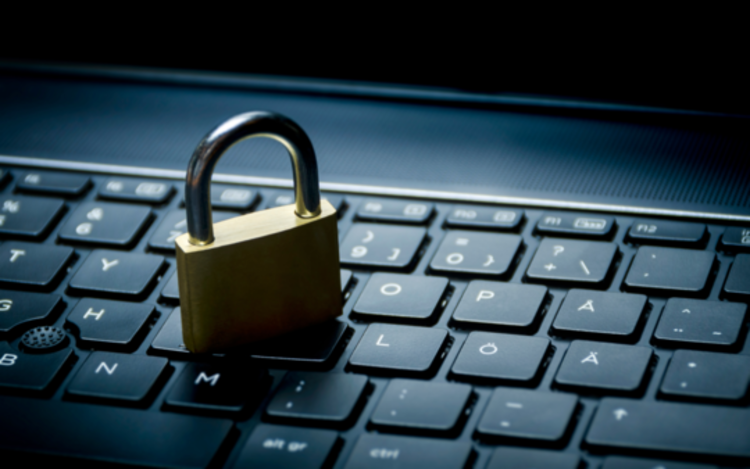CMS Security: Why It's Crucial for Your Business

Businesses spend years building products, customers, trust, and systems. A cyberattack can compromise all of that and send you back years.
It can compromise multiple aspects of your business—from customer data to intellectual property—and cause financial and legal damage to multiple parties.
In this article, we'll discuss CMS security and why it's absolutely necessary for any business operating online.
Introduction to CMS Security
Your business's content and user data are valuable for your business and your customers. And much like your physical valuables, these also need protection—especially today, considering how many business transactions are online and how advanced today's hackers are.
To secure online content and data, you need CMS security. It protects your Content Management System from all cyber threats like unauthorized access, data breaches, and other cyber frauds. This includes protecting your:
- Business data
- Customer data
- Intellectual property
- Content
- Communication data
- Transaction information
- Login credentials
- Website functionality
- User permissions
5 Critical Reasons Your Organization Can't Afford a Cyberattack
A weak website security opens doors for hackers to steal your data, damage systems, or halt operations. But it goes far beyond this.
Here are some common repercussions of cyberattacks.
- Financial damage
- The first thing that comes to mind when you think of a cyberattack is “loss of money.” You lose money through:
- Stolen funds or ransom payments.
- Customer refunds, compensation, and recovery expenses.
- Lost revenue from halted operations.
- Expenses for fixing systems, investigations, and IT upgrades.
- Non-compliance with regulations like GDPR or PCI DSS.
- Lawsuits and settlements from affected parties.
- Loss of customers, reduced sales, and the cost of rebuilding trust.
- Decreased market valuation after a breach becomes public.
So, a data breach isn’t just a one-time occurrence. It has long-lasting effects.
Reputational damage
Cyberattacks leave you with more than just financial hits. They also hurt your reputation, which you’ve spent years building. Customers abandon ship and switch to competitors who they think are safer.
Jahia’s continuous security scanning and granular access controls stop unauthorized access and keep all business and customer data secure.
Legal penalties
Obviously, the rules are tougher for businesses that deal with sensitive data, like personal information, health records, financial details, or credit card information. This includes banks, insurance companies, hospitals, etc. Strict rules also mean heavier fines if they get hacked or fail to meet the set requirements.
A platform like Jahia can help protect credit card details and health records or follow GDPR rules. Jahia features such as data encryption and reinforced access controls help your platform to stay compliant, keep your business and customer sensitive data safe, and help avoid legal trouble. All this is guaranteed by ISO 27001 certification, the strictest international standard for information security management.
In terms of security, Jahia sets a high standard, which is reassuring for regulated industries such as healthcare or finance. For those who prefer working with open-source solutions, Jahia offers a version that allows developers to customize the CMS in depth, according to the specific needs of their project.
Know more about security in Jahia with our experts
Disruption in service
A cyberattack may halt, disrupt—or worse—shut down your operations altogether. Chances are, you won't be able to serve customers, process payments, and/or keep your website up and running.
For example, ransomware attacks lock you out of your systems until you pay a ransom. This means work stops, money is lost, and customers are frustrated.
Jahia takes proactive measures to avoid these situations entirely. Features like continuous security scanning and DDoS protection regularly identify and address vulnerabilities while preventing malicious traffic from disrupting your services. This way, your platform stays operational and resilient against attacks.
Loss of Competitive Advantage
A cyberattack weakens your defenses, and you risk data leaks. Competitors can use the leaked data to steal clients, copy ideas, or get ahead of your business.
Take the 2017 NotPetya malware attack, for example. Maersk couldn’t operate due to the attack, so competitors stepped in, took over their customers, and gained their market share. The company suffered losses of $200 to $300 million and lost many customers.
Something like this could literally take years to recover from, as you’d have to rebuild your market position and customer base and regain their trust.
Long-term headaches
Recovering from a cyberattack is expensive and goes beyond fixing your systems. You need to pay for investigations, rebuild your IT setup, cover legal fees, and handle public relations to repair your reputation.
These costs can stretch your budget, slow down your growth, or even send your business years behind. Over and above that, regulatory investigations that follow can disrupt daily operations and may uncover other issues, leading to even more fines.
Jahia’s security features help prevent breaches before they occur, saving your business from high recovery costs and stressful investigations.
Key CMS Features to Strengthen Your Website's Security
To secure your own and your customers' data and intellectual property, you must implement strict checks and practices. Here we list common CMS security practices that you should expect while choosing a CMS:
- ISO 27001 certification: Follows global standards to manage sensitive data securely.
- GDPR and HIPAA compliance: Meets strict privacy rules to keep personal and health info safe.
- Continuous security scanning: Checks for security gaps regularly and fixes them quickly.
- DDoS protection: Blocks harmful traffic from disrupting your site.
- Granular permissions: Controls who can see or change specific information to prevent unauthorized access.
- Single Sign-On (SSO) Integration: Makes logging in easy and safer.
- Two-Factor Authentication (2FA): Adds an extra step to log in for better protection.
Conclusion
Customers share their personal and sensitive information with you because they trust your business to keep it safe. If that information is compromised, so is their trust in you.
This can bring you a lot of stress and problems—issues that can be avoided with a reliable and secure CMS.
You need it to make sure both you and your customers feel safe and protected while doing business online. It takes the burden off by safeguarding sensitive data with features like encryption, access controls, and regular security checks. It not only ensures compliance with rules but also stays ahead of potential threats by proactively protecting your data.


